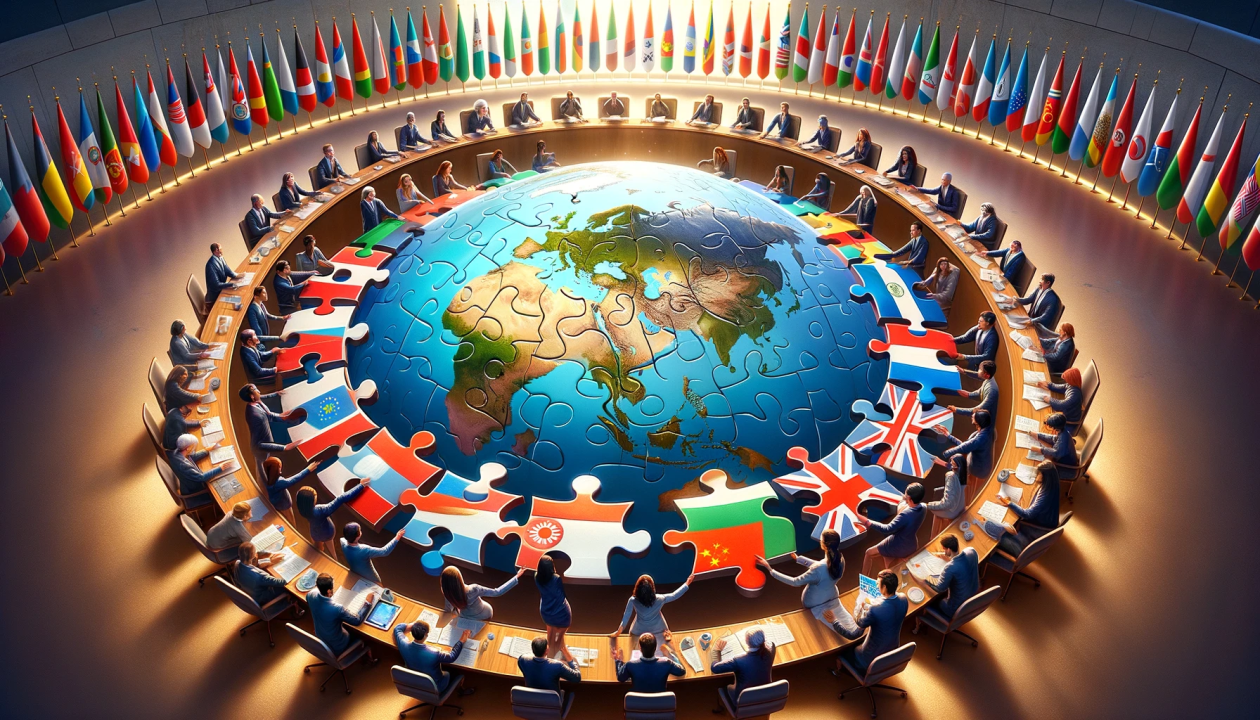Department of Research, Studies and International Relations 31-08-2024

The fall of the USSR in 1989-91 provoked a sense of omnipotence in the dominant circles of Western capitalism, all the more so as it was preceded by a decade in which neoliberalism triumphantly ascended in the West itself (1980-90), as well as the decline of a series of Third World regimes that had emerged from anti-colonial, national liberation movements and revolutions.
This feeling was captured by Francis Fukuyama in his essay on the “End of History”, what was essentially the end of the contradictory and heroic effort of modern man to become the subject of his own history.
Everything was to be regulated by impersonal “markets”; in reality, those in a position to control global financial capital. It is a totalitarian project to control all people, societies, nations and states; to control all social and international evolution, appearing of course under the banner of democracy and the supposed self-regulating role of the “markets”.
After the collapse of “communism”, financial capital, more concentrated than ever before, experienced an unprecedented rise in economic and political power, taking over directly functions that normally belong to the states; the usefulness of states to big capital has diminished since the disappearance of the “external enemy” and of the internal movements of contestation.
An “Empire of Finance” has emerged which is becoming the real State of our time, to which individual states are largely subservient.
This Empire created an economic “New World Order” after the supposed end of the Cold War, based on the Washington consensus, the Maastricht Treaty and a series of international organisations such as the WHO, the IMF, etc. It imposes the release of financial capital from all control and all constraints on its activity, thus prolonging the crisis which has persisted since 2008.
(Western aggressivity against Russia can be explained well by the desire of the US and Western economic elites to exercise absolute control in the former Soviet countries. But we cannot exclude that the financial crisis of 2008 has also played a role. As has often happened in the past, economic crises provoke wars and vice versa. The interrelationship between the economic situation and geopolitics in our time is a subject which has not receive the study and research it deserves).
With the 2008 crisis, ‘happy globalization’ (la mondialisation heureuse) is yielding to “unhappy globalization”. Europe is moving towards the accelerated demolition of the European welfare state, the greatest conquest of the European peoples since the victory over Nazism, culminating in the destruction, by economic and political means, of Greece.
Since the banks are ‘too big to fail’, it is societies, states and nations that will fail. (Again, we witness an interesting correlation between economics and geopolitics. The severity of the economic “war” against Greece has nothing in common with the neoliberal programmes imposed on other peripheral countries of the EU. This also probably happened because of the geopolitical position of Greece and Cyprus. In history, all the campaigns of Western powers against the Russian or Islamic East have been preceded by attacks in order to control South-Eastern Europe).
Fukuyama’s project is based on the assumption that the assimilating power of the Western economic, political and cultural model is sufficient to support the global domination of Western Capitalism and those who control it.
This is not the opinion of Samuel Huntington, who believes that such domination can only be established by force of arms and war. And because he cannot say so, he puts forward the racist and unsubstantiated theory that cultural differences inevitably cause conflict. He lays thus the foundations for a struggle of the “superior” collective West against the rest, but also for divisions among the “rest”, because no global domination can be imposed without the use of “divide and conquer” policies.
Of course, we all know that the European powers did not go to Africa to civilise the Africans, they went there to grab their raw materials. We also all know that the US did not intervene in dozens of countries around the world in order to establish democracy there, otherwise they would not have imposed bloody dictatorships all over the world, from Chile to Indonesia.
And vice versa. If people and peoples who are at an extreme material disadvantage turn to religion (or even the partially secular “religion” of communism in the 20th century), they do so in order to be able to resist and exist.

